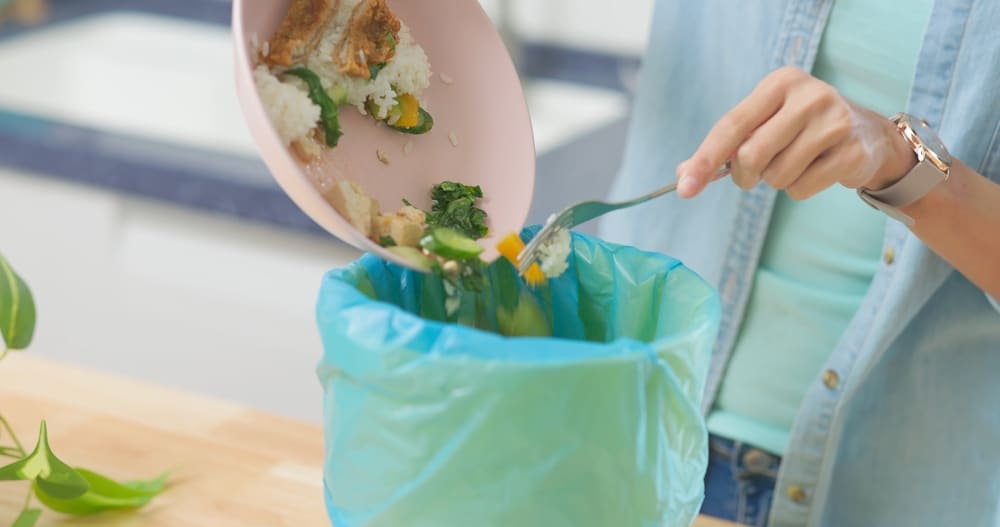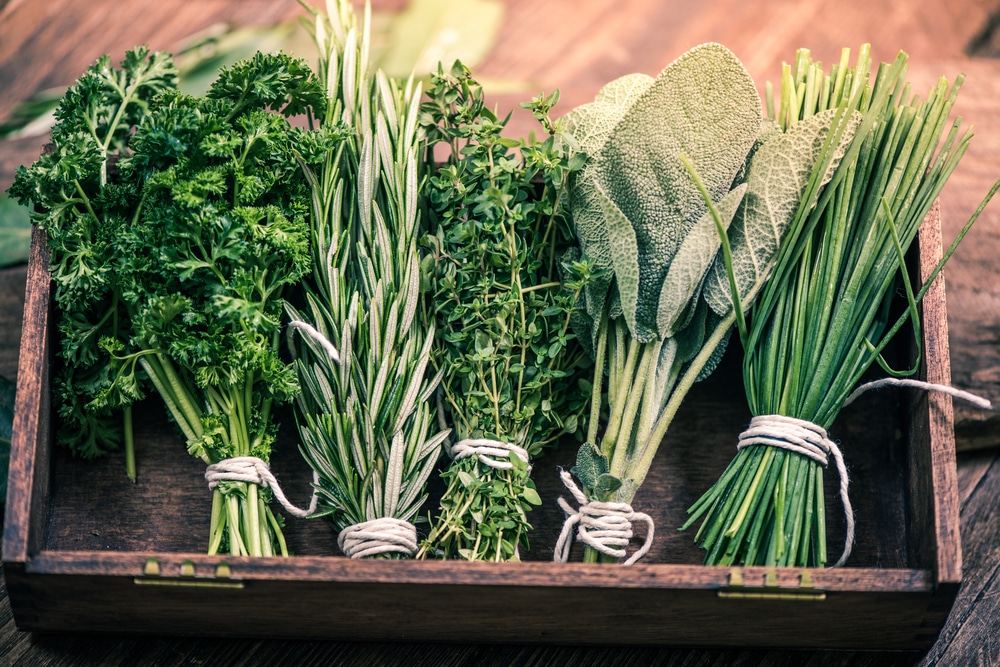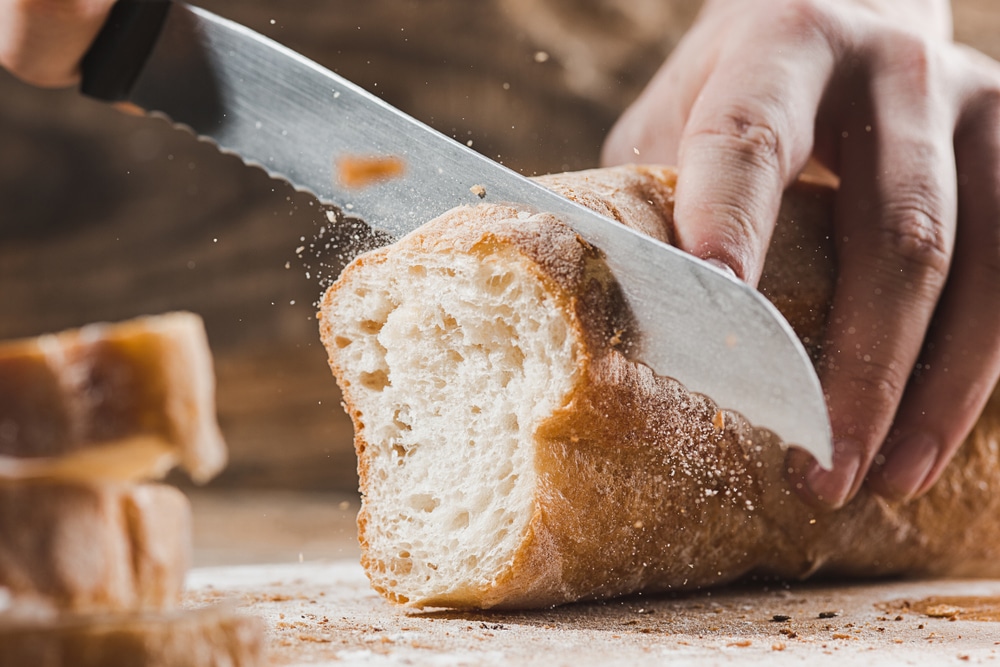Jasmine Birtles
Your money-making expert. Financial journalist, TV and radio personality.


For a limited time, get 60% off your first box and 25% off for two months with code HFMONEY60. Click here.
How can you prevent food waste within your home?
With food inflation rising at its fastest rate for almost four decades, there is no time like the present to learn some interesting ways to keep your food fresher for longer. Food waste is a big problem for us Brits, with the average UK household throwing away approximately £800 worth of food every single year. That’s almost £70 per month!
At the moment, making your food go further and preventing good food from getting thrown away is one of the top ways you can save money on your food shopping. You may be surprised at some of these top tips!
Giving your veggies a vinegar bath when you bring them home from the supermarket not only helps to naturally disinfect them, but keeps them clean and removes any nasty bacteria that might break down your food more quickly.
Put your vegetables in a bath of one part vinegar to three parts water. You should not be able to taste the vinegar on your produce afterwards. Let your carrots, broccoli, parsnips and peppers soak for about 15 minutes.
Thoroughly rinse them and dry them, before popping them into the fridge. Removing bacteria keeps your vegetables fresh for up to a fortnight. This helps to prevent food waste which would normally come from rotting veg.
We hadn’t heard of this one, either! Once opened, your milk can last anywhere from around four to 10 days in your fridge. This depends on the type of milk you use, of course, and how many cups of tea you consume! If you are like us, we can’t go through the day without endless cuppas with a nice biscuit. But we digress.
Adding a pinch of salt to your milk immediately after opening it acts as a preservative. It deters bacteria from growing, without compromising the taste of the dairy goodness. Give the carton a good shake and put it into the fridge as soon as possible.
Don’t put it in the door, mind. The door is the warmest part of your fridge, as it is furthest away from the cooling system. Try putting your cartons of milk at the back of the fridge on the highest shelves. This will lengthen its shelf life, guaranteed.

Fresh herbs are delicious, but they often go unused and end up in the compost. Try freezing them before they start to turn. You can pop them into freezer bags as they are, or chop your herbs up finely and put them into ice cube trays.
You can either fill the ice cube trays with good old water, or put olive oil in them, adding them to dishes to give that brilliant herby flavour. Plus, using ice cube trays means you get the perfect portion size every time.
This can be done with green herbs, such as parsley, coriander and chives, as well as delicious add-ins such as garlic and ginger.
You can also freeze nuts, surprisingly. Although nuts and seeds have a longer shelf life than fresh herbs, they only last three to six months. If you need to extend the shelf life of any nuts you have in your cupboard, you can pop them in the fridge. However, if for any reason you don’t think you will use the nuts you have, you can pop them in the freezer.
On the topic of herbs, did you know that treating your fresh herbs as if they are fresh flowers will keep them going for even longer? Add water to a glass or small vase, pop your herbs in and put a plastic sandwich or freezer bag over the top. This will keep your herbs fresh, crunchy and vibrant for much longer.
Of course, dried herbs are the best bet if you are someone who finds themselves going through lots of herbs.
Wrap your hard cheese in parchment or baking paper, ditching the plastic packaging. Plastic packages can cause excess moisture, which may encourage mould. Similarly, parchment allows your cheese to ‘breathe’, without drying out.
Freezing any bread you don’t think you will use quickly enough, before it stales or goes mouldy is a way to prevent food waste. However, if you forget to do so, you can run an ice cube over the bread, before popping it in the oven for a few minutes.
If you have no ice, drizzle some water over your loaf. This adds moisture back into the bread, making it edible once again. You can also use stale bread to make homemade bread crumbs, which can then be frozen.

There are lots of myths surrounding bananas and whether they speed up the ripening process of other fruits nearby. The answer is yes, technically they do. All fruits produce ethylene, a gas. Bananas produce a higher concentration of this gas, speeding up the ripening process of surrounding produce.
Apples, peaches, pears, melons and avocados also produce a high concentration of ethylene, so keep an eye on where you store these in relation to other fresh items.
Wrapping bananas in tin foil or cling film can slow the ripening process will also add a day or two onto their shelf life. You can wrap them individually or as a bunch. Don’t forget, brown bananas are perfect for making a delicious banana loaf, so consider that before throwing anything away.
Did you know, paper towels can be a huge help when it comes to storing your berries? Whether you are a fan of strawberries, blueberries or raspberries, don’t let the juicy, sweet goodness go to waste. Berries should be stores in airtight containers with a dry piece of kitchen roll.
The paper absorbs any excess moisture, reducing the likelihood of mould developing on the fruit. Change the paper towel every other day for maximum freshness. This could add up to three weeks to the life of your berries!
Do you have any top tips on how to prevent food waste? We want to know. Leave your comments below!

As soon as I get my veg home, I chop it up nicely and freeze it all, in little bags that I redeem from items that come in the post to my work! Did you know that electrical items like printers often put their instructions into a plastic bag with a re-seal on them? I use all of these up over and over again. They would only go to landfill.
Then I take out the veg I need as and when and make all sorts of yummy things, particularly soups, with them!
When prepping veg for a meal or a batch cooking session, I chop up all the peels, stalks, etc and put them in a large pan with a chopped onion, a few handfuls of red lentils and some bouillon powder, then cover it with water and boil until everything’s soft, then season (with garlic paste, lemon juice, etc) and liquidise for instant soup. Thrifty and delicious! People are always asking me for the recipe, but I have to tell them it’s a family secret in case they’re offended by me serving them leftovers…
I do sit my blueberries on a folded paper towel in the bottom of their container and another one on top and they last for getting on a month and aren’t mouldy! But I’ve never thought of doing that with raspberries or any other berries.